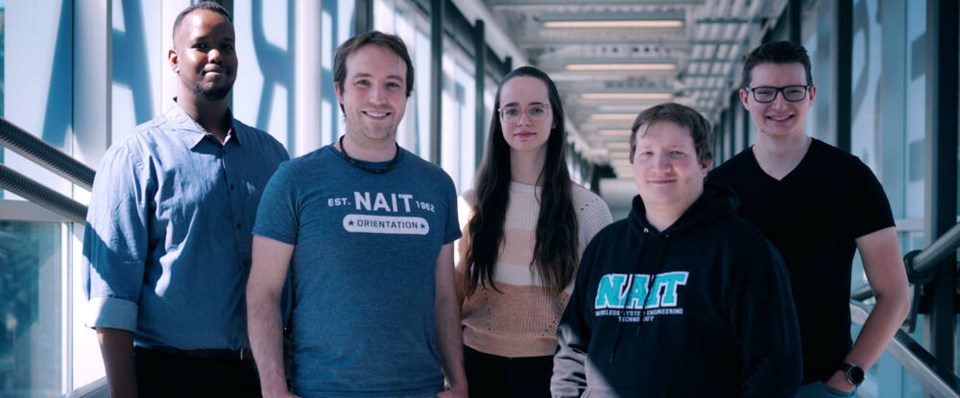A former Salt Spring Island resident says his upbringing on the Gulf Islands played a role in winning an Alberta engineering technology prize for a project exploring affordable internet access for remote communities.
Jacob Maxwell, 31, was part of a team of Northern Alberta Institute of Technology students that won the Capstone Project of the Year Award from the Association of Science and Engineering Technology Professionals of Alberta.
“This means quite a bit to me, to the validation of my work, but more importantly, I’m excited for what it means for the project that we’ve put so much time and effort into,” Maxwell said.
The project developed an affordable and environmentally friendly way to utilize new technology to deliver internet to off-grid and remote communities.
The team, which included Abdallah Farah, Natasha Bergstrom, Steven Sager and Spencer Tracy, used solar power to fuel a Starlink broadband internet system capable of providing internet access to remote areas at a fraction of the cost of establishing an electrical grid and internet infrastructure.
Maxwell, who is currently advancing his training at Lethbridge College, estimates the cost of the concept system in remote areas with plenty of sun would be less than $10,000.
While Maxwell has been living in Alberta for a decade now, he recalled growing up on Salt Spring Island and not having a computer in the house until he was in Grade 8. Even then, he said, that computer was attached to a dial-up modem, meaning online access was disrupted when the phone was in use.
He said he knows what it means not to have immediate access, and what a difference it can make when it exists.
“I know what kinds of doors that opens in terms of education and expanding someone’s mindset to a global mindset,” he said, adding there are immense economic benefits, social benefits and even improved access to health care.
Barry Cavanaugh, chief executive of the Association of Science and Engineering Technology Professionals of Alberta, said the association has been blown away by the work of the students and their focus on tackling problems through an environmental and global lens.
“I hear them talking about making a difference,” he said, noting they seem less interested in how things may be commercialized than how they can solve problems. “It’s remarkable the massive ingenuity that’s available in the engineering technology profession.”
aduffy@timescolonist.com



